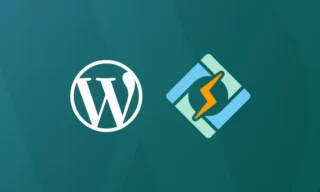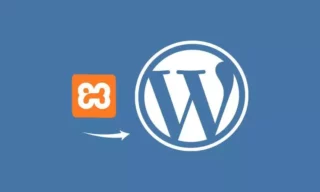Essential WordPress Conditional Tags: Maximize Your Website’s Impact
In the dynamic world of WordPress, one feature stands out for its versatility and power: WordPress Conditional Tags. These little snippets of code might seem daunting at first, but their potential to transform your website is enormous.
From crafting tailored user experiences to optimizing content for specific scenarios, conditional tags are a game changer.
But what exactly are they, and how can they redefine the way you manage your website?
WordPress Conditional Tags
WordPress Conditional Tags: a powerful feature enabling developers to craft dynamic websites, enhancing user control over content. These tags facilitate the addition of custom conditions to pages and posts, elevating user experience. This post delves into their workings, usage, and benefits.
What Are Conditional Tags?
Conditional Tags in WordPress are key tools for developers, altering content display based on specific conditions. They vary content between different pages, like home pages and single posts. Utilized with template files (e.g., header.php, footer.php) or within posts/pages using shortcodes, they’re divided into two types: is_ functions and compare functions.
Is Functions
Is Functions verify the truth of a condition. For instance, is_home() checks if the home page is being viewed, returning true or false accordingly. Common is functions include:
is_admin(): Admin page check.is_archive(): Archive page (category, tag, author, date) check.is_attachment(): Media file page check.is_singular(): Single post/page check.is_page(): Single page check.is_home(): Home page check.
Compare Functions
Compare Functions assess the equality of two values. Examples:
in_category(): Post-category relationship check.has_tag(): Post-tag assignment check.has_term(): Object-taxonomy assignment check.has_excerpt(): Object-excerpt existence check.
Why Use Conditional Tags?
Conditional Tags customize content for different users (logged-in vs. guests) and pages. They help organize content, making it page-specific and reducing reader confusion. These tags can also control the visibility of content blocks, like creating a Members Only section visible only to logged-in users. For detailed usage, the WordPress Codex on Conditional Tags is recommended.
Tips for Using Conditional Tags
- Understand True/False Values: Recognize the conditions’ fulfillment.
- Wrap Tags in PHP: Ensures WordPress code validity.
- Condition Order Matters: Prioritize likely conditions.
- Know Available Information: Utilize post IDs, types, and taxonomies.
- Use Built-in Tags: For quick condition setups.
WordPress Conditional Tags and Functions
Each of these tags can be used to control the content and layout of a WordPress site based on different conditions and contexts.
- comments_open: Checks if comments are enabled for the current post.
- has_tag: Determines if the current post has a specific tag.
- has_term: Checks if a post or object has a specific term in a taxonomy.
- in_category: Checks if the current post is in a specific category.
- is_404: Returns true if the current page is a 404 error page.
- is_admin: Indicates if the dashboard or the administration panel is being displayed.
- is_archive: True if any type of archive page is being displayed (category, tag, author, date, etc.).
- is_attachment: Checks if an attachment page is being displayed.
- is_author: True if an author archive page is being displayed.
- is_category: Determines if a category archive page is being shown.
- is_child_theme: True if the current theme is a child theme.
- is_comments_popup: Checks if the comments are being displayed in a popup window.
- is_date: True if a date archive page is being displayed.
- is_day: Checks if a daily archive page is shown.
- is_feed: True if the page is a feed.
- is_front_page: Determines if the front page of the site is displayed.
- is_home: Checks if the blog posts index page is being displayed.
- is_month: True if a monthly archive is being displayed.
- is_multi_author: Determines if the site has more than one author.
- is_multisite: Checks if WordPress Multisite is enabled.
- is_main_site: True if the current site is the main site in a multisite network.
- is_page: Determines if a page is being displayed.
- is_page_template: Checks if a page is using a specific template.
- is_paged: True if the page being viewed is “paged” (showing a sequence of posts).
- is_preview: Checks if the current view is a preview.
- is_rtl: True if the current language is written in a right-to-left script.
- is_search: Determines if a search result page is displayed.
- is_single: Checks if a single post of any post type (except attachment and page types) is being displayed.
- is_singular: True for any single post, page, or attachment.
- is_sticky: Determines if a post is “sticky”.
- is_super_admin: Checks if the current user is a super admin in a multisite network.
- is_tag: True if a tag archive page is being displayed.
- is_tax: Determines if a term from a custom taxonomy is displayed.
- is_time: Checks if a time-based archive is displayed.
- is_year: True if a yearly archive is being displayed.
- pings_open: Determines if pingbacks or trackbacks are enabled for a post.
- post_type_exists: Checks if a given post type exists.
- is_post_type_hierarchical: Determines if a post type is hierarchical (like pages).
- is_post_type_archive: True if a post type archive page is being displayed.
- taxonomy_exists: Checks if a specified taxonomy exists.
- is_new_day: Determines if the post being displayed was published on a new day.
- has_excerpt: Checks if the current post has an excerpt.
- has_nav_menu: Determines if a theme has a specific navigation menu.
- in_the_loop: Checks if the current script is inside the WordPress Loop.
- is_active_sidebar: Determines if a given sidebar is active (has widgets).
- is_plugin_active: Checks if a specific plugin is active.
- current_theme_supports: Determines if the current theme supports a particular feature.
- is_trackback: Checks if the request is for a trackback.
Conclusion
WordPress Conditional Tags are indispensable for creating dynamic, user-centric websites. They enable content customization without extensive coding, adapting to each visitor’s needs. Exploring these tags can significantly enhance your WordPress experience.




